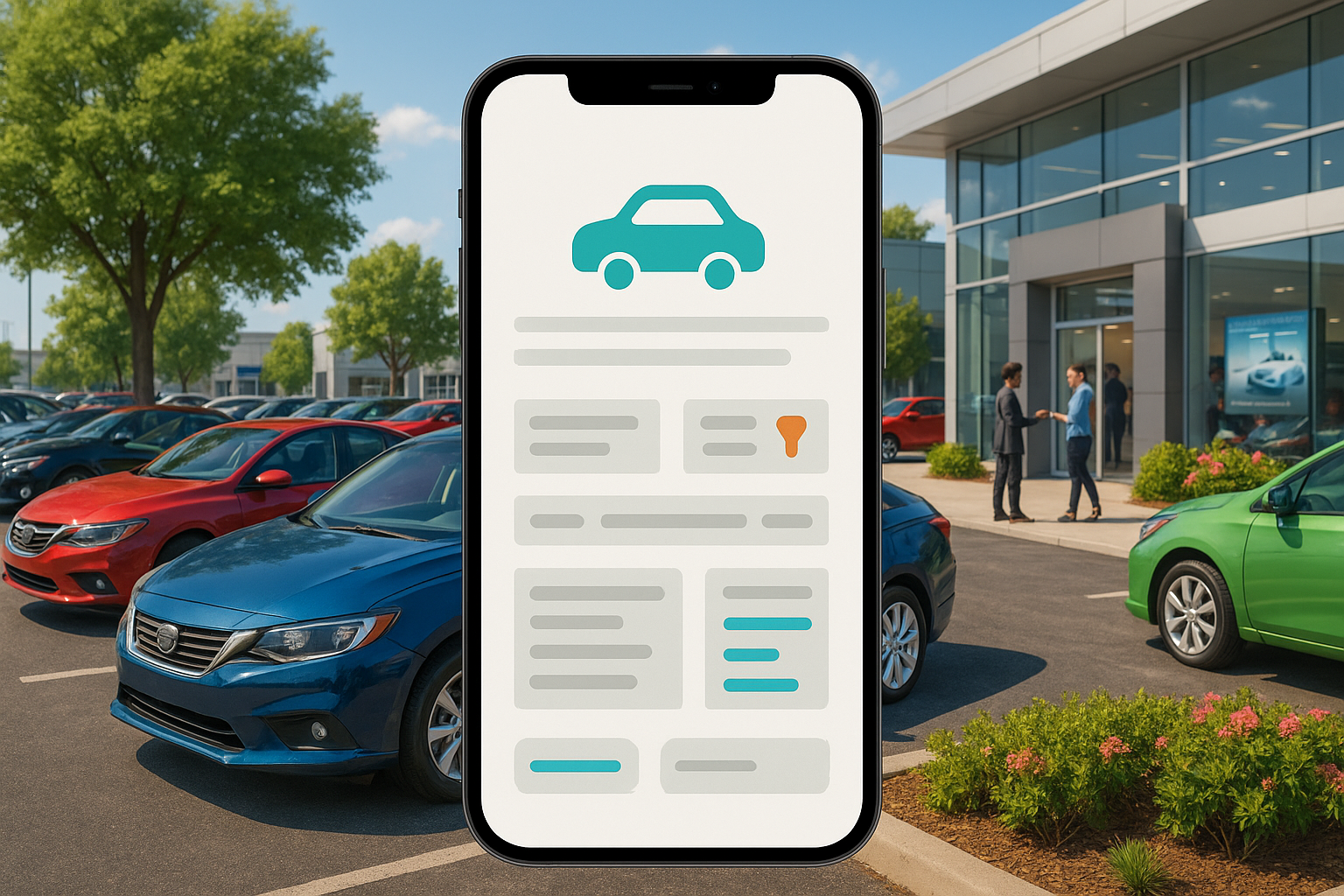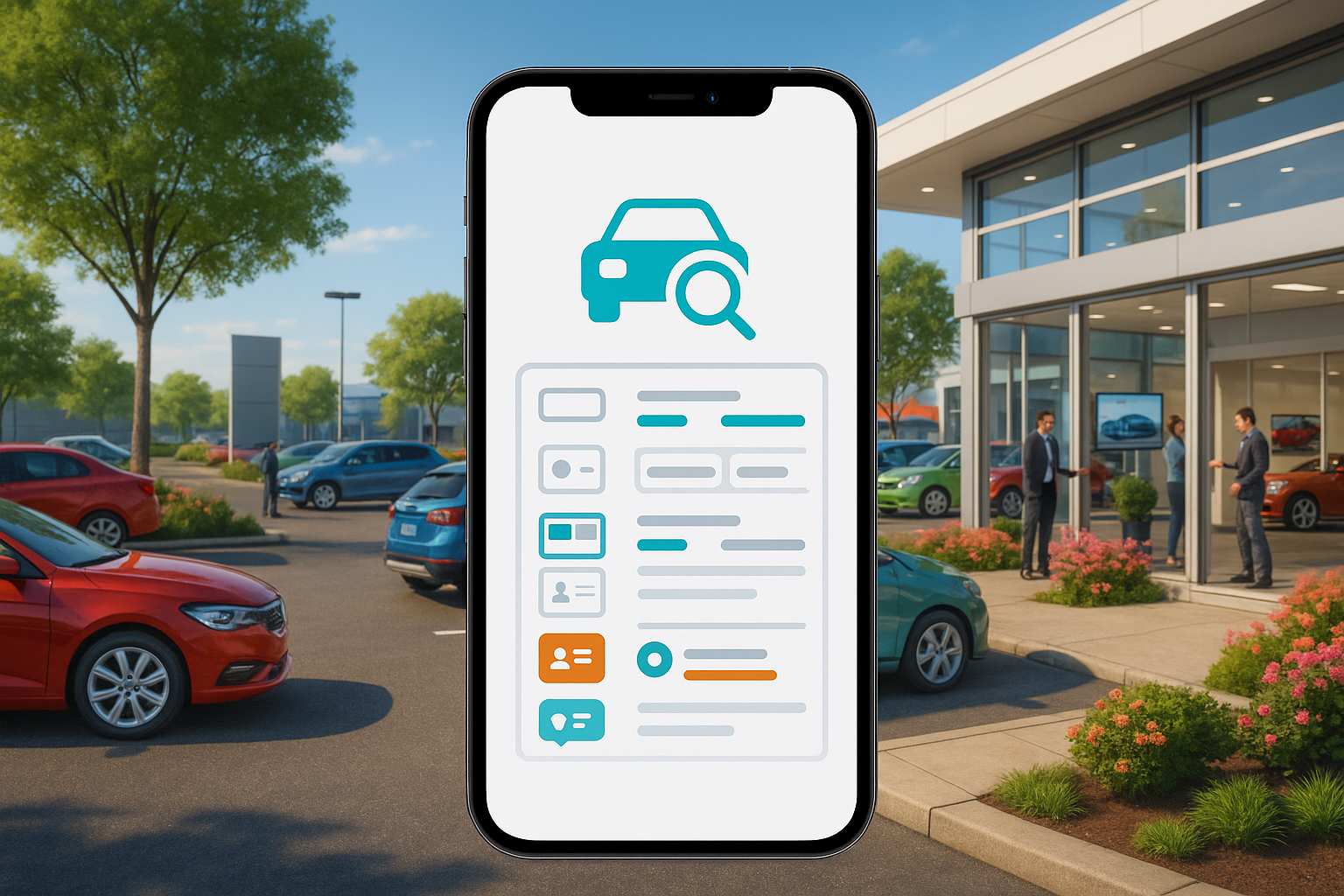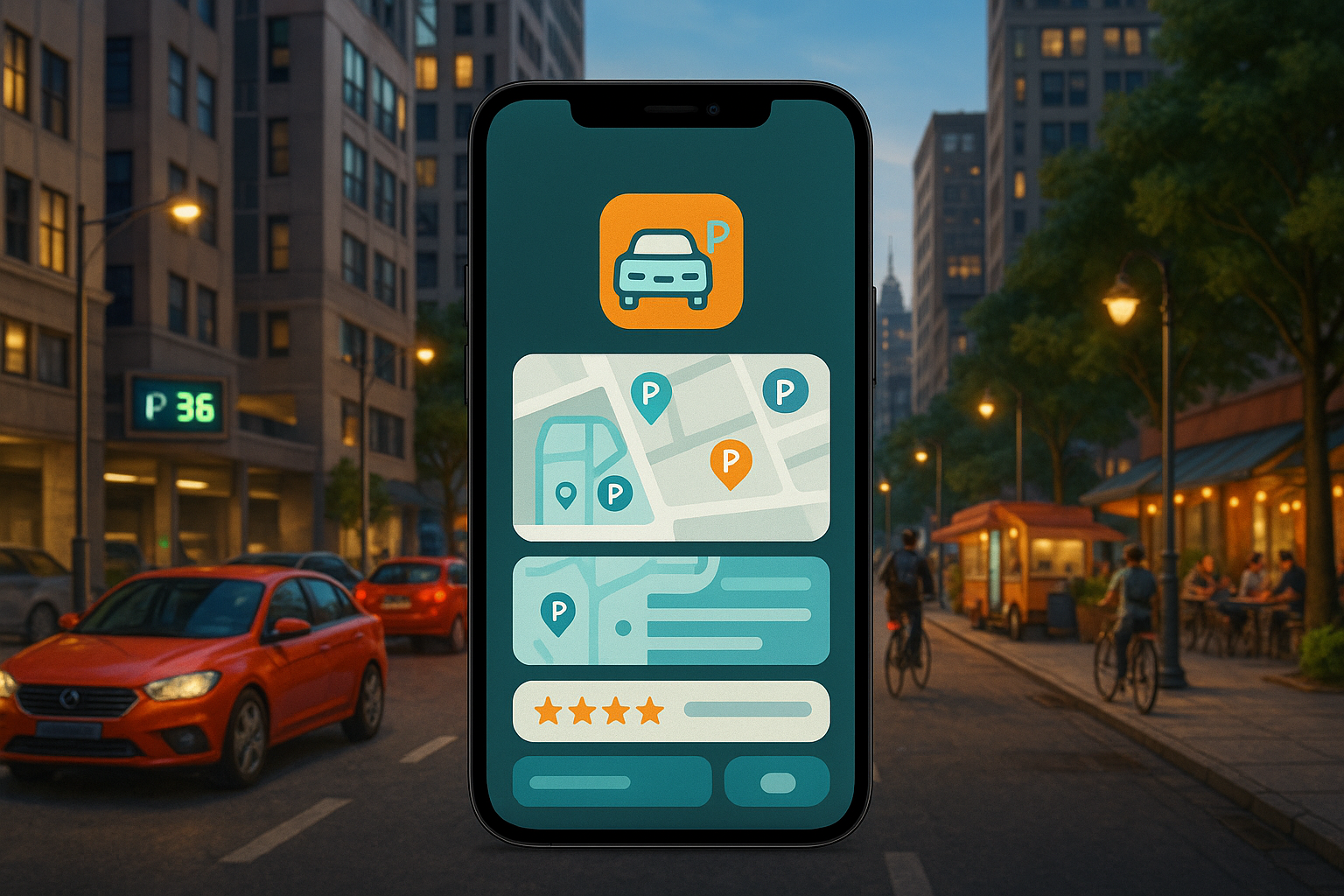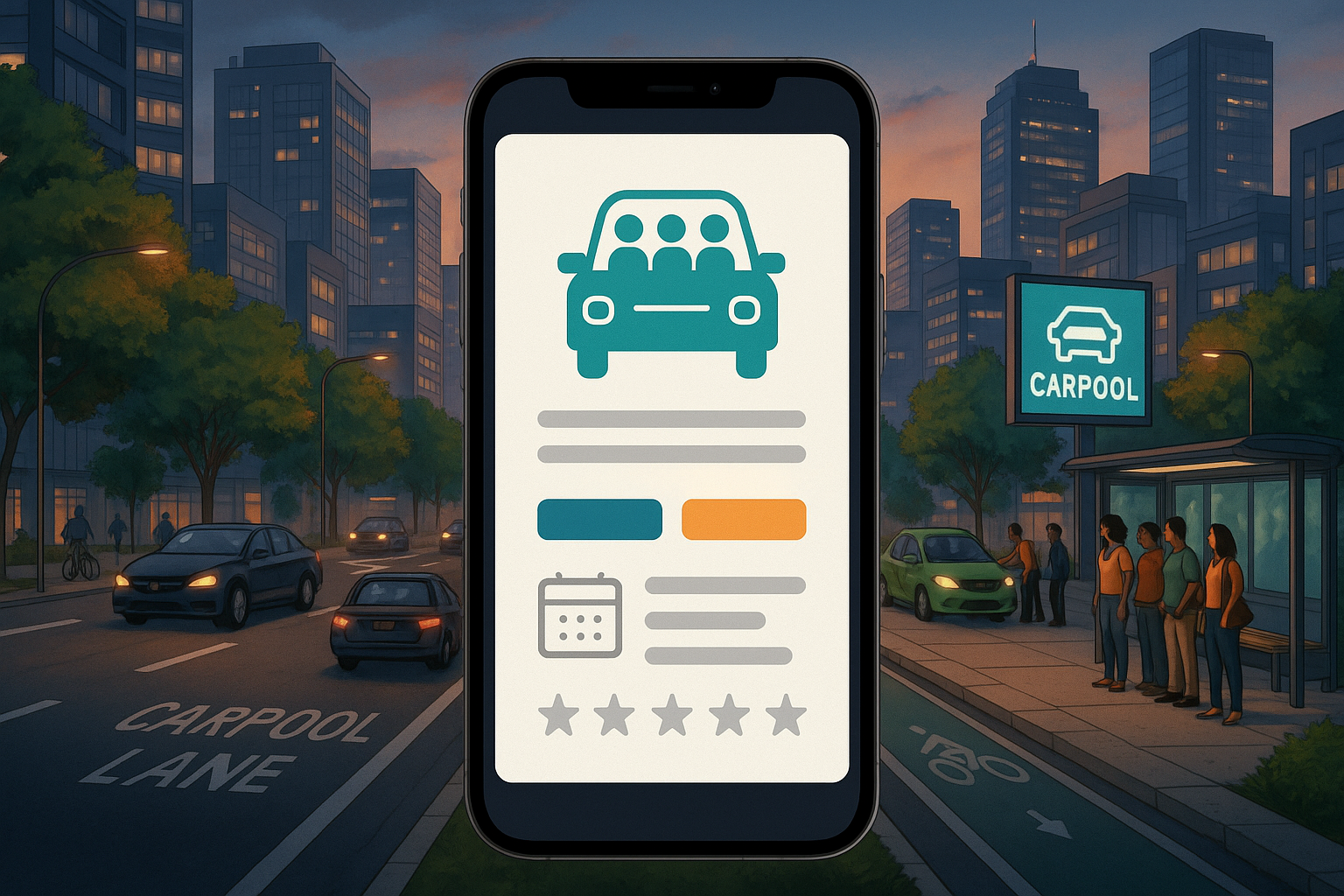Introduction
The digital transformation of the automotive industry has accelerated dramatically, with online car marketplaces like Autotrader fundamentally changing how consumers buy and sell vehicles. These platforms offer unparalleled convenience, selection, and information, making them an indispensable tool for modern car shoppers. However, building such a sophisticated application is a monumental task. It involves far more than simply creating listings; it requires constructing a complex, two-sided marketplace that balances the needs of buyers and sellers, integrates numerous third-party services, and establishes a foundation of trust.
Developing a car marketplace app in-house can quickly become a resource-draining endeavor, fraught with technical challenges, strategic pitfalls, and unforeseen costs. From implementing secure payment gateways to integrating real-time vehicle history reports and building a scalable infrastructure, the complexity can overwhelm even experienced development teams.
This comprehensive guide will navigate the intricate world of car marketplace app development. We will explore what defines these applications, the inherent difficulties of building them, the diverse business models you can adopt, and the potential costs involved. Furthermore, we will introduce the leading development companies that can turn your vision into a reality. As a top US AI-powered mobile app development firm, we at MetaCTO specialize in building, growing, and monetizing complex applications. We will show you how our expertise can help you not only launch a car marketplace but also integrate its powerful features into any new or existing product, ensuring you go to market with a competitive edge.
What is a Car Marketplace App?
At its core, a car marketplace app is a digital platform designed to connect individuals and dealerships looking to sell vehicles with prospective buyers. However, a successful app is much more than a simple classifieds board. It is a feature-rich ecosystem built to facilitate every step of the car buying journey, from initial research to the final transaction. These platforms are engineered to be comprehensive, user-friendly, and trustworthy.
A modern car marketplace app, such as an Autotrader clone, is built on a foundation of several key features:
-
User-Friendly Interface and Discovery: The user experience is paramount. An intuitive interface helps users navigate millions of new and used cars effortlessly. To enhance discovery, these apps leverage geolocation to display vehicles available in the user’s immediate vicinity, creating a localized and relevant shopping experience.
-
Advanced Search and Filtering: The ability to find the perfect car is a core function. Users can filter results using a wide array of criteria, including:
- Make, model, and year
- Price range and mileage
- Body style and fuel type
- Transmission and engine size
- Exterior and interior color
- Geographic location
-
Comprehensive Vehicle Details: To empower buyers to make informed decisions, listings provide exhaustive information. This includes detailed specifications, a list of features, a gallery of high-quality images, and a thorough written description. To further enhance the experience, platforms like the Autotrader marketplace offer virtual tours and walk-around videos to showcase vehicles in detail.
-
Trust and Transparency: Building trust is critical. Car marketplace apps achieve this by integrating vehicle history reports, which provide users with comprehensive information about a car’s past, including accident history, title issues, and maintenance records. Additionally, users can rate and review both cars and dealerships, creating a community-driven layer of accountability.
-
Seamless Communication and Negotiation: The app facilitates direct interaction between parties. A car value app for Android, for instance, enables buyers and sellers to communicate directly, negotiate prices, and schedule test drives, all within the platform’s ecosystem.
-
Financial and Transactional Tools: Modern marketplaces are end-to-end solutions. They incorporate secure payment processing for transactions and often provide tools to help users explore their financial options. Autotrader alternatives may offer integrated options for car loans and insurance. Users can also find tools to estimate their current car’s value or calculate potential monthly payments for a new one.
-
User Engagement: To keep users returning, car shopping apps utilize relevant push notifications to alert them about price drops on saved vehicles, new listings that match their criteria, and reminders for scheduled appointments.
Reasons It Is Difficult to Develop a Car Marketplace App In-House
While the idea of building your own car marketplace is appealing, the practical challenges of in-house development are significant and often underestimated. The complexity extends beyond coding and design into strategic, operational, and financial domains.
The Two-Sided Marketplace Problem
The most fundamental challenge is solving the classic “chicken-and-egg” problem inherent to any two-sided marketplace. You need a large inventory of cars to attract buyers, but you need a steady stream of buyers to convince sellers (both private and dealers) to list their vehicles on your platform. As Uber discovered in its early days, it was easier to find people who needed a ride than it was to find reliable drivers with cars. Kicking off this flywheel requires a significant marketing investment and a carefully orchestrated launch strategy to build liquidity on both sides of the market simultaneously.
Establishing Trust and Safety
A car is a major purchase, and trust is non-negotiable. Users will not engage with a platform they perceive as unsafe or filled with fraudulent listings. This is why, as the provided facts state, people trust Uber—it vets all its drivers and their vehicles. A car marketplace must implement similar rigorous verification processes. This includes:
- Vetting dealerships and private sellers.
- Verifying the authenticity of listings.
- Integrating reliable vehicle history reports to expose accidents or title issues.
- Creating a secure communication and payment system to protect users from scams.
Building and maintaining these trust mechanisms requires substantial operational effort and technical expertise in security and data protection.
High Technical Complexity and Integration
A feature-rich car marketplace is not a standalone application; it’s a hub that integrates multiple external services and complex technologies. An in-house team would need expertise in:
- API Integration: Seamlessly connecting with third-party services for vehicle history reports (e.g., CarFax), payment gateways (e.g., Stripe), financing and insurance partners, and mapping services for geolocation.
- Advanced Search Algorithms: Developing a highly performant and accurate search engine that can handle millions of listings and dozens of filter combinations is a specialized skill.
- Real-Time Communication: Building a secure and reliable in-app messaging system for negotiations and scheduling.
- Scalable Infrastructure: The platform must be built on a robust backend that can handle high traffic, vast amounts of data (images, videos, listings), and real-time updates without performance degradation.
Ongoing Costs of Infrastructure and Maintenance
The cost of a car marketplace doesn’t end with the initial development. As the provided facts highlight, the costs associated with development are always increasing as more time is spent on a platform. Furthermore, the cost of infrastructure and maintenance will continuously drive up the total cost of ownership, especially if it’s not managed by a dedicated and experienced team. This includes server hosting, database management, security updates, bug fixes, and ongoing support for a growing user base. These recurring costs can quickly strain an in-house budget.
Hiring a dedicated development agency like MetaCTO mitigates these risks. With over 20 years of experience, we provide the strategic guidance and technical firepower needed to navigate these challenges. Our Fractional CTO service can help you build a solid technology roadmap, while our development teams handle the complex integrations and build a scalable, secure platform from day one.
Different Types of Car Marketplace Business Models
Beyond the standard B2C model, the online automotive marketplace landscape has evolved to include several specialized business models. Choosing the right one depends on your target audience, value proposition, and long-term goals.
After Sales Ecosystem Marketplace
This model is a B2B2C platform that connects Original Equipment Manufacturers (OEMs), dealers, and vehicle owners, focusing on the post-purchase lifecycle. It creates a comprehensive ecosystem for genuine parts, reliable services, and trusted networks.
- Core Function: It helps automotive companies with multiple brands consolidate everything into a single platform. This streamlines operations, cuts costs, and solves the problem of a fragmented user journey.
- Benefits: By standardizing processes while allowing for brand customization, this model enables new offerings to go to market more quickly. Brands can share resources like products and warehouses, and a single tech stack allows for faster feature development. It also opens up opportunities for more economical bulk part purchases.
Mobility Marketplace
This model moves beyond vehicle ownership entirely, creating a one-stop-shop for customers seeking flexible mobility options. It taps into the growing demand for subscription/leasing, flexible financing, and sharing services.
- Core Function: A Mobility Marketplace can combine various services, including car sharing, rental services, subscription models, and ride-hailing. It addresses changing consumer behaviors and structural shifts toward sustainability.
- Benefits: This model helps automotive companies become full-service mobility providers. All data from ride booking, service appointments, and payments is used to establish pay-per-use or subscription business models. This diversifies revenue streams, widens the potential customer base, and contributes to increased business resilience in a fluctuating market.
Service Integration Marketplace
This marketplace is created within a digital customer portal that acts as a single touch-point for both consumers and brands. It focuses on enhancing convenience by integrating a network of partners and their services.
- Core Function: Customers can seamlessly connect to certified resellers for scheduled services, which can be planned based on telemetrics or contractual agreements. The marketplace can also enable in-vehicle commerce via an app or integrate local vendors through geo-tracked offers.
- Benefits: By offering services and information along every step of the value chain from one portal, this model dramatically increases customer experience and satisfaction. It strengthens relationships with partners and can increase revenue potential by delivering personalized, timely offers to customers.
Used Cars Marketplace
This model facilitates the buying and selling of used vehicles across B2B, B2C, and B2B2C sectors. It allows automotive companies to participate in the full lifecycle of their products.
- Core Function: This marketplace connects dealers and vehicle owners through an auction and bidding platform. Acquired vehicles are inspected, repaired, or refurbished. They can then be sold as entire units or as individual spare parts, with authenticity confirmed by the manufacturer via serial numbers.
- Benefits: A Used Cars Marketplace creates significant new revenue opportunities by capitalizing on the second-hand market. Offering certified refurbished vehicles enhances a brand’s reputation and builds customer trust. It also attracts a new segment of customers seeking more affordable options and increases loyalty by providing a solution along the entire vehicle life cycle.
Cost Estimate for Developing a Car Marketplace App
Determining the exact cost of developing a car marketplace app is challenging, as it depends heavily on the project’s scope and complexity. However, based on industry data, developing a platform like Autotrader typically costs between $50,000 and $200,000.
Several key factors influence this wide range:
-
Features and Functionality: This is the most significant cost driver. A basic application with simple listing and search features will fall on the lower end of the spectrum. In contrast, a comprehensive platform with advanced features will be at the higher end. These features include:
- AI-powered vehicle valuation tools
- Virtual tours and 360-degree video support
- Secure in-app payment processing
- Integration with financing and insurance providers
- Real-time chat and negotiation tools
- Advanced analytics and reporting for sellers
-
Development Time: The more complex the platform, the longer it will take to build. As the facts state, the costs associated with development are always increasing as more time is spent on a platform. An extended timeline means more hours for developers, designers, and project managers, directly impacting the budget.
-
Infrastructure and Maintenance: The initial development cost is only part of the equation. Ongoing expenses for cloud hosting, database management, security monitoring, and regular updates will keep driving up the total cost of ownership.
At MetaCTO, we specialize in helping businesses manage these costs effectively. Our Rapid MVP Development service allows you to launch a core version of your app in just 90 days. This approach lets you test your concept, gather user feedback, and validate your business model with a smaller initial investment before committing to a full-scale build.
Top Car Marketplace App Development Companies
Choosing the right development partner is the most critical decision you’ll make. An expert firm brings not only technical skills but also industry knowledge and strategic insight. While many companies offer development services, only a select few have the specialized experience required for such a complex project.
1. MetaCTO
At MetaCTO, we are more than just developers; we are expert technical partners dedicated to helping you build, grow, and monetize your mobile app. With over 20 years of app development experience, 120+ successful projects, and a 5-star rating on Clutch, we have a proven track record of turning ambitious ideas into market-leading products.
What sets us apart is our specialization in integrating complex systems and AI into mobile applications. Building a car marketplace isn’t just about creating a new app from scratch; for many businesses, it’s about integrating this functionality into an existing ecosystem. This integration is fraught with challenges. You must connect disparate systems—payment gateways, vehicle history APIs, CRM software, communication tools—while maintaining a seamless and intuitive user experience.
This is where our expertise shines. We handle every step of the process:
- Validate: We help you turn your idea into an MVP quickly to test the market and secure funding on a tight budget.
- Build: Our team manages the entire design, build, and launch process, delivering a polished, market-ready app.
- Grow: We use analytics and A/B testing to optimize user acquisition, engagement, and retention.
- Monetize: We help you implement the most effective monetization strategies, from subscriptions to in-app purchases.
- Evolve: As your business scales, we ensure your app evolves with it, leveraging the latest technology to keep you competitive.
Our deep expertise in AI Development allows us to build advanced features like predictive maintenance alerts, AI-driven vehicle valuation tools, and personalized recommendations that set your platform apart.
Other Leading Development Companies
While we are confident in our ability to deliver exceptional results, it is important to be aware of other strong players in the automotive software space. The following table provides a brief overview of other reputable companies.
| Company | Headquarters | Years of Experience | Engineers | Clutch Rating | Best For |
|---|---|---|---|---|---|
| Apriorit | Needham, MA, USA | 20+ | 400+ | 4.9 | Automotive cybersecurity, telematics, and AI/ML for predictive maintenance. |
| ELEKS | Tallinn, Estonia | 30+ | 2,000+ | 4.9 | Predictive maintenance, vehicle system optimization, and IoT integration. |
| N-iX | North Miami Beach, FL, USA | 20+ | 2,200+ | 4.9 | Scalable solutions for autonomous driving, telematics, and AI-based systems. |
| Instinctools | Stuttgart, Germany | 20+ | 350+ | 4.6 | Connected car platforms, V2X communication, and cloud-based frameworks. |
| Itransition | Denver, CO, USA | 25+ | 3,000+ | 4.9 | AR-based displays, legacy modernization, and custom fleet management. |
| Avenga | Cologne, Germany | 20+ | 3,450+ | 4.8 | IoT-enabled EV software, AI-driven platforms, and mobility solutions. |
| Binariks | Torrance, CA, USA | 20+ | 200+ | 4.9 | Fleet management, safety systems, and data-driven automotive applications. |
| Vention | New York, USA | 20+ | 3,000+ | 4.8 | Cloud-based vehicle management, firmware development, and connectivity. |
| Intellias | UK, USA, Malta | 20+ | 3,000+ | 4.9 | Autonomous driving software, EV solutions, and mobility ecosystems. |
| QBurst | India | 20+ | 3,000+ | 4.7 | Cloud platforms, advanced navigation tools, and infotainment systems. |
Conclusion
Developing a car marketplace app is a complex but potentially rewarding venture. As we have explored, a successful platform requires more than just listings; it demands a user-friendly interface, advanced search capabilities, comprehensive vehicle details, and a strong foundation of trust built through features like vehicle history reports and user reviews.
The path to launching such an app is filled with challenges, from solving the two-sided market problem to navigating high technical complexity and managing ongoing maintenance costs. We have also seen the diverse business models available—from After Sales Ecosystems to Mobility Marketplaces—each offering unique opportunities to capture value in the automotive industry.
Building a successful car marketplace is a significant undertaking, but you don’t have to do it alone. A strategic partner can provide the expertise, resources, and guidance needed to navigate this complex landscape. At MetaCTO, we specialize in building sophisticated, AI-enabled mobile apps and have a proven process for taking products from concept to launch and beyond.
Talk with a Car Marketplace expert at MetaCTO today to discuss how we can help you build a powerful, scalable marketplace platform. Whether you are starting from scratch or looking to integrate marketplace functionality into an existing product, we are here to help you build your app the right way, from day one.






